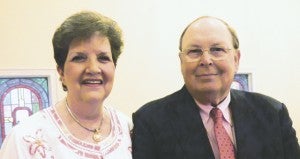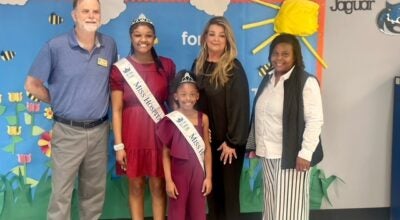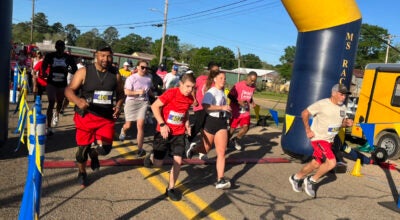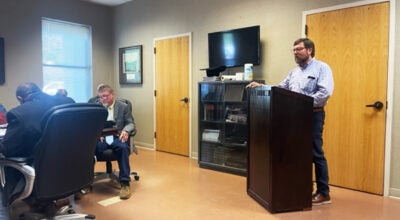Diane Daughdrill: 20 years after cancer
Published 12:02 pm Wednesday, April 30, 2014
Employed at the same facility for the last 38 years, Jefferson Davis Community Hospital Director of Human Resources Diane Daughdrill has seen a lot of changes in the health care field. She has also seen changes in the treatment of cancer since her own battle with the disease 20 years ago.
“I had just had my yearly mammogram a month earlier but found a lump on self exam. I got an appointment with my doctor and surgery was done to remove the mass. We had to wait for the results of the biopsy before further surgery was scheduled.
After recuperating from surgery Daughdrill received 6 months of chemotherapy. She did lose her hair but states she is thankful she did not experience as much of the nausea side effect as many do, however, her taste was affected and some smells would bring on nausea.
Daughdrill also had problems with weakness but she continued to work stating she had good support from her employer and her husband, Wesley, and there were several friends who had battled cancer that gave her encouragement and treatment insights. On completion of her initial treatment Daughdrill took a chemo drug for five additional years.

Shirley Burnham / The Prentiss Headlight—JDC Relay for Life Luminary Chairperson Diane Daughdrill celebrates 20 years after cancer with husband Wesley.
“After 15 years of being cancer free,” states Daughdrill, “my oncologist said I didn’t have to come in anymore. That was a wonderful day!”
Since Daughdrill was diagnosed 20 years ago there have been advances in medical technology for all types of cancers due in a large part to research funded by the American Cancer Society. As a result the number of cancer survivors continues to rise.
Treatment is begun frequently to shrink the cancer even before surgery. Biopsy and surgery as well as reconstruction surgery can all be done during the same procedure allowing treatment to begin sooner. Lymph node testing now negates removal of healthy nodes. These treatment options, Daughdrill states, were not available to her at the time of her diagnosis.
According to ACS statistics, on a typical day in the mid-south, (Mississippi, Louisiana, Arkansas, Tennessee and Alabama) 383 people will be told, “You have Cancer.” 3,677 people will find answers to their questions about cancer by calling 1-800-227-2345 and visiting cancer.org. 643 transportation services will be provided to help cancer patients get to their treatment. 18 women undergoing treatment will learn how to care for changes in skin and hair and regain their self-confidence. 14 people will learn more about treatment options, managing side effects and financial concerns. 180 cancer patients will have a free place to stay at one of the Hope Lodges provided by ACS while they receive treatment. 104 newly diagnosed cancer patients will become better equipped to fight back against the disease. Researchers looking for new treatment options and potential cancer breakthroughs will conduct $74,163 in research, funded by the ACS.
Nearly 19,000 American Cancer Society program services were provided to over 3,000 people in Mississippi in 2012.
Relay for Life is the largest fundraiser for the American Cancer Society. Community involvement is vital to keep Relay functioning as a viable tool to raise funds that support research, patient services, early detection, treatment and education to improve the quality of life of a cancer patient that may be your mother or father, your wife or husband or your child.
“At the time I was diagnosed with cancer our two sons, Wesley and Wade, were in high school,” states Daughdrill. “I am so thankful to have been able to experience the pleasures of having seen them married and to enjoy our five grandchildren.”
Daughdrill has been a part of the county’s Relay for Life Team since its formation serving as Co-Chair for three years and for the last three years has served as Luminary Chairperson. Her advice is definitely early detection. For women, do regular self-exams and have yearly mammograms, and for everyone– keep up with yearly physical checkups. “If you notice any changes in your body have them checked out,” encourages Daughdrill. “Don’t wait for your next checkup appointment.”
Since the American Cancer Society’s research program was founded in 1946 it has funded about $4 billion in cancer research and is the largest non-profit, non-governmental source of cancer research funds in the United States.
Your donations are making a real difference, today and every day, in the lives of people fighting cancer.
Come out and be a part of the JDC’s Relay for Life Event to be held Friday, May 2, 2014 beginning with the Survivors’ Reception at 6 p.m. and Relay at 7 p.m.





